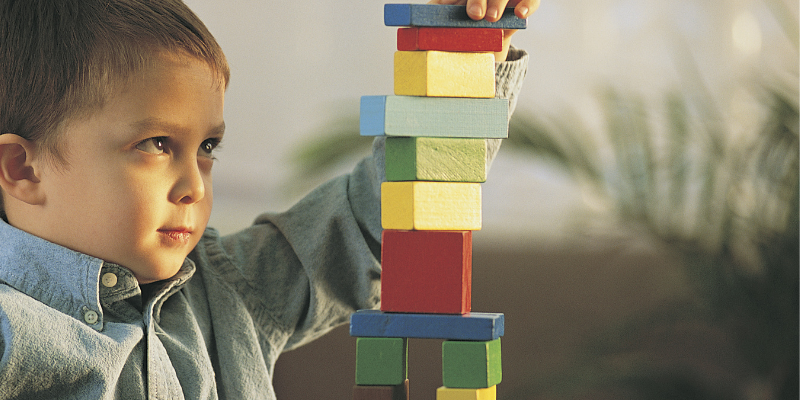
As the pandemic and lockdown drag on, kids and teens are experiencing more emotional and behavioral issues. An estimated 1 in 6 children (17%) ages 2-8 have a diagnosed mental, behavioral, or developmental disorder, according to the CDC. And 20% of adolescents and teenagers 13-18 live with a mental health condition, according to the National Association of Mental Illness (NAMI).
With the pandemic, it’s getting worse. A recent study in Pediatrics suggests that since March 2020, 14% of children are experiencing worsening behavioral health. Another study in JAMA Pediatrics on 2,330 schoolchildren in China found that after a single month of lockdown, nearly 23% reported depressive symptoms, 19% had symptoms of anxiety, and over 37% said they were “quite worried” about being infected with COVID-19. This means more youngsters may be living with undiagnosed issues that can affect every aspect of their lives—academic performance, relationships, self-esteem, and more.
You may be aware of some of the classic symptoms of mental and behavioral health problems in children—hyperactivity, prolonged depression, debilitating anxiety—but there are many other subtle signs that often go overlooked. Especially now, it’s important to be on the lookout for these telltale signs.
Most Common Mental Health Problems in Children
At Amen Clinics, which has treated tens of thousands of children, the most common issues our neuropsychiatrists see in children, adolescents, and teens include:
- ADD/ADHD
- Anxiety
- Depression
- Behavioral problems (including oppositional defiant disorder and anger issues)
- Concussions and traumatic brain injuries (TBI)
Other conditions that affect young people include:
- Autism spectrum disorder (ASD)
- Bipolar disorder
- Obsessive compulsive disorder (OCD)
- PANDAS/PANS
- Post-traumatic stress disorder (PTSD)
- Substance use disorders
- Tourette syndrome
- Eating disorders
- Schizophrenia
- Learning disabilities
Since the pandemic began, more children are developing symptoms related to these issues and many children who have already been diagnosed are experiencing more severe symptoms.
SUBTLE MENTAL ILLNESS SIGNS THAT ARE OFTEN OVERLOOKED
Pay attention to the following 10 signs that are commonly seen in mental and behavioral health problems.
- Changes in sleeping habits: Keep an eye on your child’s sleep routine. Sleeping much more than usual or requiring far less sleep may be cause for concern.
- Persistent nightmares: Occasional bad dreams are normal, but research in the British Journal of Psychiatry shows that children who have recurring nightmares or night terrors are more likely to experience psychotic episodes later in life.
- Physical aches and pains: Headaches, stomachaches, muscle pain, and other forms of physical discomfort are commonly seen in anxiety and depression. If your child has frequent physical symptoms with no apparent cause, it may be time to investigate.
- Difficulty making friends: Kids who have trouble relating to their peers or developing friendships may be showing signs of behavioral or developmental disorders.
- Changes in appetite or diet: If your young one suddenly loses their appetite or makes big changes to their daily diet, it could mean they’re having trouble.
- Mood swings: You may think moodiness is typical behavior for young people, especially teenagers, but having emotional outbursts, temper tantrums, or crying spells can be a sign they’re struggling.
- Poor school performance: Having trouble in school can be a red flag warning that a child is having some form of issue that’s keeping them from performing up to their potential. Taking a long time to complete homework that should only take a short while is another indication that there may be an underlying issue.
- Avoiding or missing school: Pay attention if children or adolescents are skipping school, as it can be a sign that something is troubling them. This is also a common sign of substance abuse.
- Persistent boredom: Tired of hearing your child say “I’m bored” all the time? Everyone feels bored from time to time, but chronic boredom is associated with mental health issues, like ADD/ADHD and depression.
- Argumentative, aggressive, and oppositional behavior: The “terrible twos” when a child says no to everything, stomps their feet, and throws tantrums are cute for a 2-year-old. It isn’t cute in older children or teens. This type of behavior deserves professional attention.
ADD/ADHD—as well as anxiety, depression, and other mental health conditions—can’t wait. During these uncertain times, your mental well-being is more important than ever and waiting until life gets back to “normal” is likely to make your symptoms worsen over time.
At Amen Clinics, we’re here for you. We offer in-clinic brain scanning and appointments, as well as mental telehealth, remote clinical evaluations, and video therapy for adults, children, and couples. Find out more by speaking to a specialist today at 888-288-9834. If all our specialists are busy helping others, you can also schedule a time to talk.





My son is suffering from psychosis schizophrenia from 5 years now, how to cure it
Comment by Hardip Kaur — October 30, 2020 @ 6:59 AM
Please clarify this:
Difficulty making friends: Kids who have trouble relating to their peers or developing friendships may be showing signs of behavioral or developmental disorders
Comment by q — October 30, 2020 @ 2:04 PM
I have the same question as q. Could you please clarify the statement #4: Difficulty making friends
Thank you
Comment by Jill — November 9, 2020 @ 12:12 PM
The useful thing about this article is that it can help parents identify when their children are truly struggling and need intervention. The problem is is that most doctors will recommend medication. I think this is the worst possible intervention except in extreme cases because it doesn’t actually fix anything. In my experience, skill building, various forms of family or individual psychotherapy along with making sure that the child’s brain is being well fed are the interventions to be seeking. When we’re under stress our brains, including our children’s brains, use up their precursor nutrients more quickly, leaving the brain deficient in precisely what it needs to function optimally. So please make sure your children’s brains are getting enough protein, fruit, veggies, etc. so that they can function optimally.
Comment by Christina Veselak — November 10, 2020 @ 5:53 AM
i really enjoyed reading this article, it has a lot of valuable info it’s the first time to know it, thanks for sharing these tips
Comment by تمريض منزلي — November 10, 2021 @ 1:10 AM